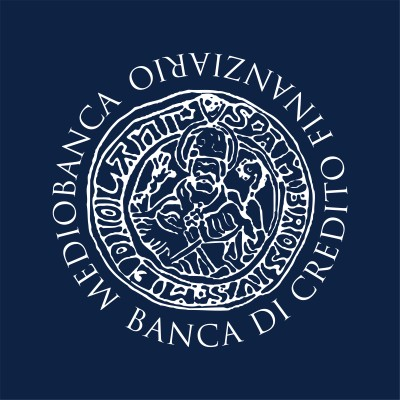A Banking Showdown: Monte Paschi's Bold Bid for Mediobanca
January 27, 2025, 9:42 pm
In the world of finance, surprises can be as common as the changing tides. Recently, Banca Monte dei Paschi di Siena SpA, a name steeped in history, made waves with a €13.3 billion all-share offer for its larger rival, Mediobanca SpA. This unexpected move has sent shockwaves through Italy’s banking sector, a landscape already rife with intrigue and maneuvering.
Monte Paschi's offer is not just a number; it’s a bold statement. The proposal suggests exchanging 23 new shares for every 10 Mediobanca shares, valuing the latter at approximately €15.99 each. This represents a 5% premium over Mediobanca's closing price before the announcement. Yet, the market reacted with mixed emotions. While Mediobanca's shares climbed by 3.8%, Monte Paschi's stock plummeted by as much as 10%. It’s a classic case of one bank’s treasure being another’s burden.
Analysts are skeptical. They see limited synergy between the two banks. The merger could be like trying to fit a square peg into a round hole. The complexities of the Italian banking landscape add another layer of difficulty. The Del Vecchio and Caltagirone families, major shareholders in both banks, have their own interests at stake. Their influence looms large, complicating the dynamics of any potential deal.
Mediobanca, under the leadership of CEO Alberto Nagel, is preparing its defenses. The bank views the bid as unsolicited and hostile. The board is set to convene to assess the situation, weighing the interests of stakeholders against the backdrop of a potential takeover. The stakes are high. Mediobanca has weathered storms before, surviving previous attempts to unseat its leadership. This time, however, the government’s support for Monte Paschi adds a new twist to the tale.
The Italian government, which still holds an 11.7% stake in Monte Paschi, sees the privatization of the bank as a means to create a stronger domestic banking presence. In a landscape dominated by giants like UniCredit and Intesa Sanpaolo, the emergence of a third major player could reshape the industry. Prime Minister Giorgia Meloni has voiced her support for the deal, calling Monte Paschi “perfectly healed” and ready for ambitious moves. It’s a nod to the bank’s recovery from a tumultuous past, marked by a government bailout in 2009.
Yet, the road ahead is fraught with challenges. The market's reaction suggests skepticism about the deal's viability. Analysts point out that the offer's initial premium has evaporated, as Monte Paschi's shares continue to decline. The financial community is watching closely, weighing the potential benefits against the risks.
The proposed merger promises to create a banking powerhouse, potentially ranking among the top three institutions in Italy by total assets. Monte Paschi envisions annual cost savings of €300 million, a tempting prospect in a competitive market. However, the reality of integration often proves more complex than anticipated. Merging two distinct corporate cultures can be like mixing oil and water.
The backdrop of Italian banking is a tapestry woven with intricate relationships and rivalries. The Del Vecchio and Caltagirone families are not just shareholders; they are key players in this drama. Their stakes in both banks give them the power to influence outcomes significantly. As the dust settles from Monte Paschi's surprise bid, their next moves will be critical.
Mediobanca's response will be crucial. The board's upcoming meeting will determine whether the bank will mount a defense or explore alternative strategies. The stakes are high, and the clock is ticking. The financial world is abuzz with speculation, and every decision will reverberate through the markets.
As the situation unfolds, one thing is clear: the Italian banking sector is in a state of flux. Monte Paschi's audacious bid is a reflection of broader trends in European banking, where consolidation is becoming the norm. The landscape is shifting, and players must adapt or risk being left behind.
In the end, this is more than just a battle for control over two banks. It’s a reflection of the changing tides in finance. The outcome will shape the future of banking in Italy and beyond. Will Monte Paschi emerge victorious, or will Mediobanca fend off this unsolicited advance? Only time will tell. But for now, the stage is set, and the players are ready. The banking showdown has begun.
Monte Paschi's offer is not just a number; it’s a bold statement. The proposal suggests exchanging 23 new shares for every 10 Mediobanca shares, valuing the latter at approximately €15.99 each. This represents a 5% premium over Mediobanca's closing price before the announcement. Yet, the market reacted with mixed emotions. While Mediobanca's shares climbed by 3.8%, Monte Paschi's stock plummeted by as much as 10%. It’s a classic case of one bank’s treasure being another’s burden.
Analysts are skeptical. They see limited synergy between the two banks. The merger could be like trying to fit a square peg into a round hole. The complexities of the Italian banking landscape add another layer of difficulty. The Del Vecchio and Caltagirone families, major shareholders in both banks, have their own interests at stake. Their influence looms large, complicating the dynamics of any potential deal.
Mediobanca, under the leadership of CEO Alberto Nagel, is preparing its defenses. The bank views the bid as unsolicited and hostile. The board is set to convene to assess the situation, weighing the interests of stakeholders against the backdrop of a potential takeover. The stakes are high. Mediobanca has weathered storms before, surviving previous attempts to unseat its leadership. This time, however, the government’s support for Monte Paschi adds a new twist to the tale.
The Italian government, which still holds an 11.7% stake in Monte Paschi, sees the privatization of the bank as a means to create a stronger domestic banking presence. In a landscape dominated by giants like UniCredit and Intesa Sanpaolo, the emergence of a third major player could reshape the industry. Prime Minister Giorgia Meloni has voiced her support for the deal, calling Monte Paschi “perfectly healed” and ready for ambitious moves. It’s a nod to the bank’s recovery from a tumultuous past, marked by a government bailout in 2009.
Yet, the road ahead is fraught with challenges. The market's reaction suggests skepticism about the deal's viability. Analysts point out that the offer's initial premium has evaporated, as Monte Paschi's shares continue to decline. The financial community is watching closely, weighing the potential benefits against the risks.
The proposed merger promises to create a banking powerhouse, potentially ranking among the top three institutions in Italy by total assets. Monte Paschi envisions annual cost savings of €300 million, a tempting prospect in a competitive market. However, the reality of integration often proves more complex than anticipated. Merging two distinct corporate cultures can be like mixing oil and water.
The backdrop of Italian banking is a tapestry woven with intricate relationships and rivalries. The Del Vecchio and Caltagirone families are not just shareholders; they are key players in this drama. Their stakes in both banks give them the power to influence outcomes significantly. As the dust settles from Monte Paschi's surprise bid, their next moves will be critical.
Mediobanca's response will be crucial. The board's upcoming meeting will determine whether the bank will mount a defense or explore alternative strategies. The stakes are high, and the clock is ticking. The financial world is abuzz with speculation, and every decision will reverberate through the markets.
As the situation unfolds, one thing is clear: the Italian banking sector is in a state of flux. Monte Paschi's audacious bid is a reflection of broader trends in European banking, where consolidation is becoming the norm. The landscape is shifting, and players must adapt or risk being left behind.
In the end, this is more than just a battle for control over two banks. It’s a reflection of the changing tides in finance. The outcome will shape the future of banking in Italy and beyond. Will Monte Paschi emerge victorious, or will Mediobanca fend off this unsolicited advance? Only time will tell. But for now, the stage is set, and the players are ready. The banking showdown has begun.


